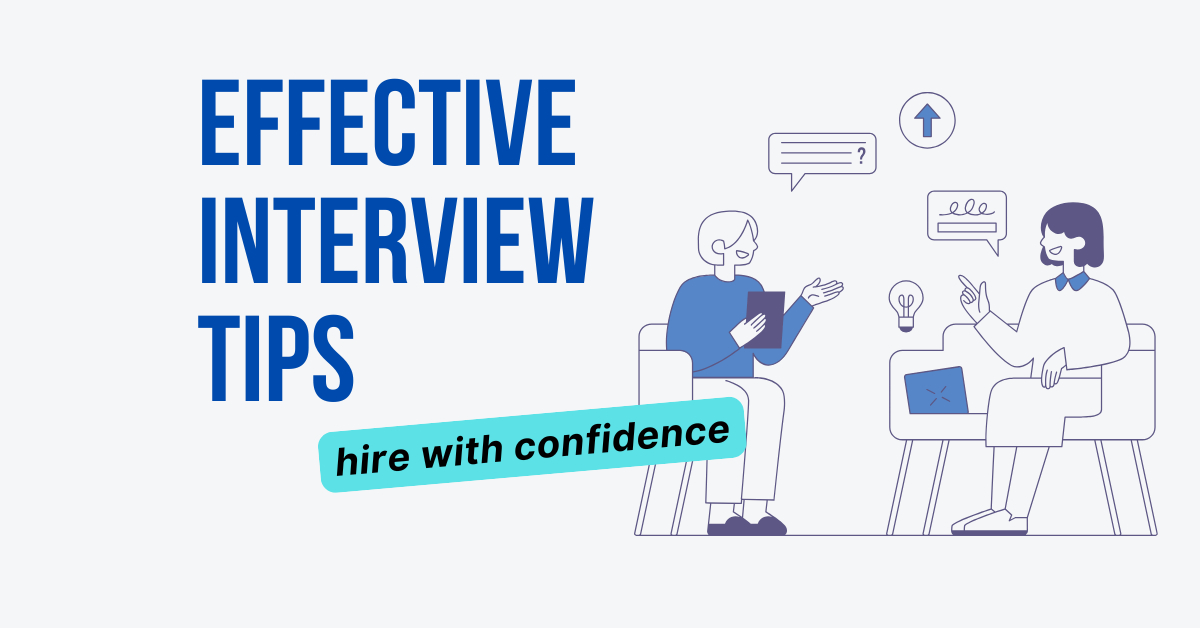
The hiring process is a crucial step for any organisation. It directly affects your workforce and the overall success of your business. Effective recruitment processes can improve employee retention, provide a better candidate experience and reduce time and costs in the long run.
With a candidate dominant labour market, what processes do you have in place to assess candidates in the most effective way?
Here’s how to make the interview process work for you and them.
Prepare your questions
Now, this might seem like a simple task to tackle, but how are you ensuring your questions are effective in finding the right candidate for you?
Begin the process by identifying what success looks like within this role. Compile a list of attributes and skills required in this position. Analyse what you want to achieve with this role and the importance it plays within your organisation.
Another good tip is to look at your top performers and note down the skills and expertise they possess. What skills do they bring to your organisation? What do they have in common? How do they contribute to the success of your organisation? These questions will reflect your company culture and the role you are hiring for.
Bias free environment
How can you ensure your interview process is fair? Unconscious bias can easily creep into the interview process, leading to inconsistent evaluations and unfair treatment.
Begin by streamlining your interview process from the start. Ensure that all candidates are asked the same questions, in the same order. Develop criteria on how you are assessing candidates answers to avoid subjective based decisions.
This will allow for more consistency and fairness in the interview process whilst evaluating specific skills or competencies that are critical for the role.
Reduce anxiety and stress
A staggering 93% of candidates feel stressed before an interview because of the many unknowns. Under stress people don’t perform as well, so how can you ensure you see the best they have to offer?
Let candidates know in advance the topics you will discuss. Anything that they can prepare ahead of time will give candidates an extra boost of confidence. Whether you’d like to hone in on the candidates’ previous experiences or discuss competency-based questions, a detailed summary ahead of time will allow the candidate to prepare accordingly, and hopefully elevate some of the stress.
Consider third party interview platforms. Online interview platforms provide flexibility for both the candidate and the recruiter. With pre-set questions or tasks, the candidate is able to complete the interview process from anywhere in the world at their pace.
.png)
Assess candidate potential
67% of employers use tasks or assessments to better gauge a candidate’s suitability for the role. This is a great opportunity for the candidate to shine and show their skill set. Before setting a task or an assessment consider the following:
-
Be clear at the beginning of the hiring process that the candidate will be expected to complete a task.
-
Keep the task manageable and brief – research shows that nearly 30% of candidates abandon the hiring process if they perceive the task to be too time-consuming or irrelevant. These should be time-bound and include specific, well – defined questions. Respect the candidate’s time and keep the prep time between 1-2 hours.
-
Respect personal circumstances – each candidate has a different set of circumstances (work, family etc.) and they shouldn’t be at a disadvantage because of these commitments. If a candidate sees a task that could take days to complete, the best candidates will simply drop out of the process and you might lose the right person for the job.
Real solutions
Focus on questions where the candidate can give you real life examples. Explain a problem your team struggles with and ask the candidate to walk you through how they would solve it. You can also describe a process your company uses and ask them to identify pros and cons.
Always go back to your list of desired attributes. If you are looking for someone organised, you can ask: “Tell me about a time where you had to juggle multiple deadlines. How did you do it and what tools did you use?” Questions like these allow the candidate to demonstrate examples from previous work places as well as their problem-solving skills.
Consider cultural fit
Cultural fit plays into employee retention and overall satisfaction. Think about your company’s work environment and see how that aligns with the candidate’s ideas and expectations. Do they prefer to work independently or in a collaborative environment? What is their leadership style? Your perception of the candidate’s disposition isn’t necessarily indicative of whether they can acclimate to a new culture. People adapt, what you want to know is – can they adjust and are they willing to do so.
Sell the job
Remember, interviews work both ways! If the interview is going well and you are confident in the candidate, consider spending time during the second half of the interview selling the role and the organisation. Ask them if there’s anyone else they’d like to meet from the team as your peers will give an honest picture of what the organisation is like. This will allow you to highlight some of the great work your organisation is doing, as well as giving the candidate a feel for the company culture.
Interview processes can be complex and time consuming. Create a strategy you and your team can follow on a regular basis to get the best results. To find out more about bias-free hiring process click here.
Sources – Harvard Business Review, Intelligent People, Kiwi Recruitment, LinkedIn

 Technical Test
Technical Test
